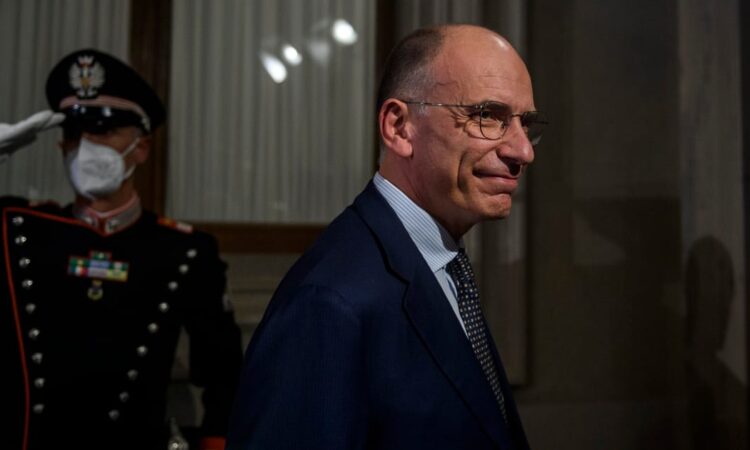
A top European politician tasked with examining the backbone of the bloc’s economic policy has outlined proposals for key reforms he will present to EU leaders.
In an interview with POLITICO, former Italian Prime Minister Enrico Letta, who has been assigned to report on the state of the single market in March, pointed out overhaul opportunities that include tearing up rules on state subsidies as well as potential measures to stop poorer countries from suffering a brain drain.
Letta, now president of the Jacques Delors Institute — named after the former head of the European Commission and one of the architects of the internal market and single currency — will present his findings to EU leaders in the spring after a tour of European capitals. He hopes that after considering his findings, leaders will conclude that “the single market has to be considered in a different way,” leading to a conversation on the economy in the run-up to the European election in June.
The single market system, designed to unify 27 individual European markets into one, ensures free movement of goods, services, capital and people within the EU (and in particular within its passport-free Schengen area), and is a fixture of the bloc’s economy. But Letta suggested that later this year, he will propose opportunities to the bloc’s leaders that will compel highly skilled workers who have emigrated to stronger economies such as France and Germany to stay within their home countries.
“I’ll try to use a term or a slogan that will accompany me in all this process, and the slogan is to say: Until now we had the single market as freedom to move. That was the center of everything. I would like to add the freedom to stay,” he said.
While he admits mobility allows for opportunity, he argues it has weakened “regions,” without getting specific. EU countries such as Romania, Poland, Italy, and Portugal have been especially affected by brain drain.
Letta said he had discussed taking on the task of assessing the internal market with Delors, who recently died. Delors, he said, recalled that when he launched the single market he also started the Cohesion Fund, which is designed to help poorer member countries improve their infrastructure.
Letta also touched on the reform of state aid, government subsidies to businesses that are fundamental to the EU economy, to ensure governments do not support some firms over others in the marketplace. In recent years, due to the pandemic, Russia’s war in Ukraine, and the Continent-wide energy crisis, officials have relaxed the rules governing emergency state aid, leading to an outcry from smaller countries who say this benefits powerful economies, such as Germany’s.
“State aid is an exception. And they must remain so. We need a European industrial policy. Not a national fragmentation.” At the same time, he added: “We had a crisis. And we had a period that was a series of crisis. So I think it was understandable …But the key point is to consider it as an exception.”
More than €760 billion in state aid has been approved so far under the Temporary Crisis (and Transition) Framework, Commission spokesperson Lea Zuber told POLITICO. Of notified state aid, Germany is behind 47.2 percent, France 22.6 percent and Italy 7.7 percent.
Letta said that figure is not dissimilar to the massive tax breaks and subsidies on everything from electric cars to wind farms and battery production launched by U.S President Joe Biden under the Inflation Reduction Act, which alarmed EU policy makers when it was rolled out.
It is a “huge, a really huge demonstration that state aid policy is at the very core of debate at the European level, and has to be at the very core of debate at the European level,” Letta said.
As for the specifics of his findings, he’ll be sharing them with top EU leaders first.
“I don’t want to spoil what I will say in my report.”






